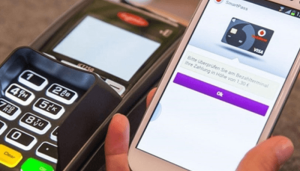Digital PR Agency vs. Traditional PR: Which Is Right for You?

Introduction to Digital PR and Traditional PR
Defining Digital PR and Traditional PR
In today’s rapidly evolving digital landscape, the realm of public relations has seen a significant shift towards digital PR strategies. Traditional PR methods, while still relevant, are now being complemented or even replaced by the more dynamic and targeted approaches offered by digital PR agencies. Understanding the key differences and advantages of both digital PR and traditional PR is crucial for businesses looking to effectively communicate their message and build a strong brand presence in the modern media environment.
Introduction to Digital PR and Traditional PR
In a world where the digital realm reigns supreme, the clash between Digital PR and its traditional counterpart continues to intrigue businesses looking to make their mark. But what exactly do these terms mean, and how do they differ in the PR landscape?
Defining Digital PR and Traditional PR
Digital PR taps into online platforms to spread brand awareness, engage with audiences, and secure media coverage. On the flip side, Traditional PR relies on offline methods like print, broadcast, and face-to-face interactions to achieve similar goals. Each approach brings its unique blend of strategies to the table.
Key Differences Between Digital PR Agency and Traditional PR
When it comes to choosing between a Digital PR Agency and Traditional PR, understanding their disparities is crucial. Let’s dive into the key distinctions:
Media Channels Utilized
Digital PR harnesses the power of online platforms like social media, blogs, and websites, while Traditional PR relies on print, broadcast, and in-person interactions to reach audiences.
Target Audience Reach
Digital PR can target specific demographics with precision through data analytics, whereas Traditional PR casts a wider net but may lack the same level of audience segmentation.
Measurement and Analytics
Digital PR offers real-time analytics to track campaign performance and engagement metrics, providing valuable insights for optimization. Traditional PR, on the other hand, may face challenges in immediate measurement and data analysis.
Advantages of Digital PR for Modern Businesses
In a fast-paced digital landscape, Digital PR offers a range of benefits tailored to modern businesses seeking to stay ahead of the curve:
Instantaneous Communication
Digital PR enables swift interactions with audiences, fostering real-time engagement and responses to trends and events.
Targeted Marketing Strategies
With data-driven insights, Digital PR can craft personalized campaigns that resonate with specific audience segments, maximizing impact and ROI.
Enhanced Brand Visibility
Through online channels, Digital PR can amplify brand presence, boost SEO rankings, and increase visibility among target audiences.
Benefits of Traditional PR in a Changing Media Landscape
While digital strategies dominate the PR sphere, Traditional PR still holds its ground with enduring advantages in a shifting media landscape:
Established Relationships with Media Outlets
Traditional PR often boasts longstanding connections with journalists and media outlets, facilitating earned media coverage and industry credibility.
Credibility and Trust Building
In a sea of digital noise, Traditional PR can lend authenticity and trustworthiness to a brand’s message through respected media channels.
Longevity of Coverage
Print and broadcast media can offer lasting visibility for brands, as opposed to the fleeting nature of online content, ensuring a more enduring impact on audiences.
Considerations for Choosing Between Digital PR and Traditional PR
Business Goals and Objectives
When deciding between digital PR and traditional PR, consider your business goals and objectives. Do you want to increase brand awareness, drive website traffic, or improve online reputation? Digital PR excels in reaching online audiences and boosting SEO, while traditional PR might be better for building relationships with journalists and gaining mainstream media coverage.
Budgetary Constraints
Your budget plays a significant role in choosing between digital and traditional PR. Digital PR campaigns are often more cost-effective, utilizing online channels like social media and influencer partnerships. Traditional PR, such as press releases and media events, can be more expensive but offer credibility and authority through traditional media outlets.
Industry and Target Audience Analysis
Understanding your industry and target audience is crucial in PR strategy. Digital PR allows for precise audience targeting using data analytics and online tools. Traditional PR can be more effective for industries where print or broadcast media hold influence. Consider where your audience consumes information to determine the best PR approach.
Case Studies: Success Stories from Digital PR Agencies
Case Studies: Effective Strategies from Traditional PR Campaigns
Conclusion: Making the Decision for Your Business
Choosing between digital PR and traditional PR ultimately depends on your unique business needs, resources, and target audience. Consider a blend of both strategies for a well-rounded PR approach that leverages the strengths of each. Remember, whether you go digital or traditional, the key is to create engaging, authentic, and impactful PR campaigns that resonate with your audience and drive results.
Conclusion: Making the Decision for Your Business
As businesses navigate the choices between digital PR agencies and traditional PR methods, it is essential to consider their unique goals, target audience, and available resources. While digital PR offers real-time engagement and precise audience targeting, traditional PR provides a sense of credibility and enduring relationships with media outlets. By evaluating the benefits and limitations of each approach in alignment with their specific needs, businesses can make informed decisions to propel their brand visibility and reputation in today’s competitive market.
Frequently Asked Questions
1. What are the main differences between digital PR and traditional PR?
2. How can businesses determine whether digital PR or traditional PR is the right fit for their needs?
3. Are there instances where a combination of digital PR and traditional PR strategies may be most effective?

AdHang.com is a No.1 agency for digital marketing in Nigeria and the first internet public enlightenment agency in Africa. AdHang has all that are needed to achieve your digital marketing objectives and goals. From strategic digital marketing, a tactical approach to employing advanced digital marketing tools and technologies, using seasoned marketers with decades of marketing communications experience.









